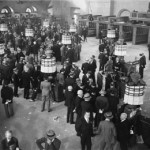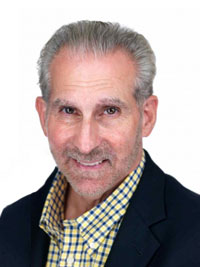The Wall Street Psychologist

Emotionally, OWS participants have real life needs for fairness, consideration, communication, and understanding as do we all do. The movement has accelerated, and stopped and started. Its path has been uneven and unclear. OCW is indeed a “work in progress.” …
Continue reading

In order to be effective, a movement must have a political base, and ultimately a financial base. Politics are related to the group’s ideas and strategies which promote their belief and value systems. Successful groups have well defined platforms and …
Continue reading

The protests were initiated by a Canadian group known as Adbusters. Their philosophy is anti-consumerist. They most certainly would not have been fans of Edward Bernays, who wrote Propaganda in 1948. He is known as “the father of public relations.” …
Continue reading

Population growth is surging; our natural resources are time-limited. As the planet nears 7 billion people by year end, our capacity to produce energy (and in turn food) will be burdened perhaps beyond what we can even imagine. The poverty …
Continue reading

Origins of the Movement The Occupy Wall Street (OWS) movement was initiated by a Canadian activist group known as Adbusters established by Micah White and Kalle Lasn. It is an anti-consumerist platform. Its essential thesis is that the developed world …
Continue reading

Yesterday, September 17, 2012, marked the one year anniversary of the Occupy Wall Street movement. Over the next several weeks this writer will post a multi-part series focusing on OWS from a variety of vantage points. The history and origin …
Continue reading

THE PROMINENCE OF “WALL STREET” IN OUR CULTURE Money has also always been a component of man’s proclivity to wage war on his fellow man. War debts had been created and the shares of these banks plus treasury bonds issued …
Continue reading

THE EMERGENCE OF STOCK TRADING In 1801, the formal name London Stock Exchange was granted. It was made up of 550 subscribers and 100 clerks. Stocks became known as funds allocated by a company or the government from its capital …
Continue reading

THE CONSOLIDATION OF WEALTH & POWER In the 1500s and early 1600s, exchange banks were formed in the Netherlands and in other parts of Italy to deal with currency exchange based on expanding trade. Privately owned financial institutions developed simultaneously …
Continue reading

THE STIGMA OF USURY Consider the concept of money lending, perhaps the greatest engine for growth ever conceived. As far back as the ancient Sumerians and Greeks, the borrowing of goods in exchange for a return enhanced by a premium …
Continue reading








